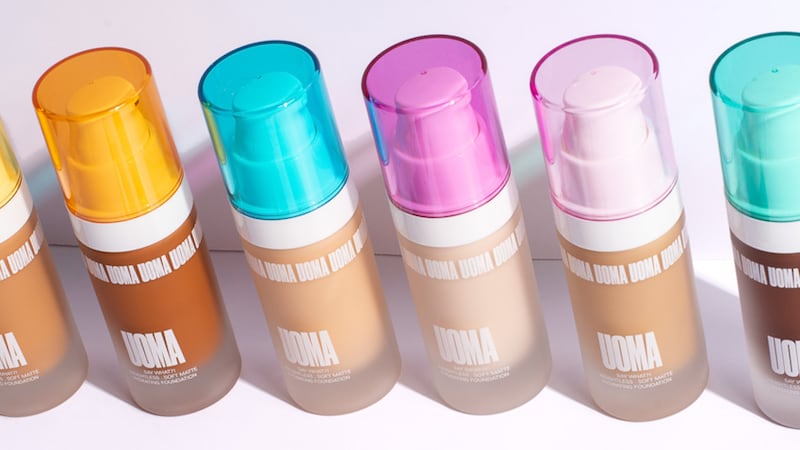
The Business of Fashion
Agenda-setting intelligence, analysis and advice for the global fashion community.

Agenda-setting intelligence, analysis and advice for the global fashion community.

This week, two of online luxury’s biggest players narrowly avoided collapse.
On Monday, after reports in recent weeks suggested a dire financial position, Farfetch announced it would sell to South Korean e-commerce giant Coupang, securing $500 million in emergency funding in a delisting deal that wiped out shareholders and bondholders. Then on Wednesday, UK retail group Frasers said it would buy Matches (known until recently as Matchesfashion) for £52 million ($63 million), a fraction of the $1 billion valuation the e-tailer reportedly fetched when private equity firm Apax Partners acquired it six years ago.
The fate of Yoox Net-a-Porter remains up in the air, however, now that a deal by owner Richemont to sell a 47.5 percent stake to Farfetch is off.
These underwhelming exits were the latest symptoms of luxury e-commerce’s post-pandemic slump. Companies could avoid reckoning with longstanding challenges for the business model — including price competition, high logistics costs and restricted access to desirable inventory — so long as demand for luxury goods was surging. But inflation and rising interest rates have starved loss-making businesses of capital and reduced even wealthy consumers’ appetite for shopping.
ADVERTISEMENT
Multi-brand e-tailers “bought for 2022 levels and then quite suddenly the growth in consumption stopped,” former Matches CEO Paolo de Cesare said. “You had high inflation, high stocks, huge discounting — it’s a perfect storm.”
Farfetch and Matches have each found their “white knight,” and it’s possible YNAP will too. But the question remains: Where does online luxury go from here?
To survive, luxury e-tailers need to map out paths to profitable growth without relying on digital ad blitzes and discounting. Investing in creating personalised shopping experiences to increase loyalty and lessen the need to constantly chase new customers is an obvious starting point.
Under their new parent companies, Farfetch and Matches have a shot. Both will have greater logistical capabilities, and technological prowess that can help them grow without burning cash. Coupang and Frasers no doubt hope their new acquisitions’ luxury credentials can boost their own standing in the sector.
After struggling to scale its China business via a joint venture with Tmall owner Alibaba, Farfetch could now turn its attention to Coupang’s home base of South Korea, where consumers spend more per capita on luxury goods than almost any other country. The possibility of linking Farfetch’s high-end merchandise with Coupang’s same-day Rocket delivery service could appeal to wealthy consumers looking for near-instant gratification. Coupang will almost certainly rid itself of some of Farfetch’s expensive side projects, including Off-White operator New Guards Group, beauty retailer Violet Grey (whose sale has already been announced) and potentially brick-and-mortar boutique Browns, allowing the business to focus on its core marketplace.
Where Coupang and Farfetch share a business model, but have little overlap in what they sell, Matches and Frasers Group might have a more symbiotic retail relationship. Under chief executive Michael Murray, buyer Frasers Group has invested heavily in its “elevation strategy” to move up market, including its Flannels unit, a chain of luxury multi-brand stores. At Matches, integrating the operational discipline of a high-street group could speed up its transition to a more focused — and, hopefully, profitable — model.
The way forward for YNAP is the least clear. Richemont was counting on Farfetch to take the unprofitable luxury retailer (it recorded a €128 million loss in its last six-month results in addition to a €500 million write-down) off its hands. Finding a buyer willing to stomach losses of that size will be tough. If a buyer can’t be found, Richemont might just shut YNAP down, Bernstein head of luxury goods research Luca Solca has said.
Right now, the fate of all three companies is mostly speculation; there is no gold standard for how to profitably run a luxury e-commerce business.
ADVERTISEMENT
The closest might be Mytheresa. The Munich-based company leverages customer data generated on its platform to identify and hook customers who are willing to spend big —and repeatedly. Mytheresa is also known for staging immersive real-world events for high rollers. The site generated earnings before interest, taxes, depreciation and amortisation of €41 million in its fiscal year ending June 2023.
Still, even Mytheresa hasn’t been immune to the wider luxury slowdown in luxury, or the troubles facing rival e-tailers: Growth in GMV (a measure of goods sold on the platform) slowed sharply from 13 to 3 percent last quarter. Shares are down 66 percent this year, and over 90 percent from their January 2021 initial public offering.
While e-commerce players have often sought to capture market share and broad appeal by mixing luxury items with accessible wardrobe fillers like $120 Nike sneakers, the latter part of their business often just isn’t profitable once high-touch service, returns and promotions are taken into account.
“This is a business where when you’re selling in the right geographies, to the right customers, with the right products you can have a very profitable business,” De Cesare said. “We’re entering an era where e-commerce will need to be managed not for scale, but with a lot of focus and discipline.”
THE NEWS IN BRIEF
FASHION, BUSINESS AND THE ECONOMY

Temu files new lawsuit against rival Shein. The lawsuit filed in a US court on Wednesday alleges fast-fashion giant Shein misused intellectual property legislation to stop merchants from working with Temu and “falsely imprisoned” Temu vendors by detaining merchant representatives in Shein’s offices for hours.
Mango to add 500 stores by 2026. The Spanish retailer said it expects to close out the year with revenue of over €3 billion ($3.3 billion), up by 12 percent compared to 2022. The fast-fashion brand also presented plans to reinforce its governance by adding four independent board members.
ADVERTISEMENT
Brands face pressure over Bangladesh labour crackdown. Eight members of Congress, including representatives Ilhan Omar and Alexandria Ocasio-Cortez have written to the American Apparel and Footwear Association calling for US brands to support higher wages and condemn repression of labour advocates in Bangladesh.
EU agrees to ban Russian diamonds in new sanctions package. The European Union adopted a 12th package of sanctions against Russia Monday, after Austria gave its final approval over the weekend. The ban on direct non-industrial diamond purchases will start on Jan. 1.
Rolex fined $100 million for thwarting online watch sales. France’s antitrust agency fined the company for pursuing an illegal decade-long crackdown on distributors selling the Swiss firm’s luxury watches online. The Autorité de la Concurrence rejected claims by Rolex’s French unit that an online ban “was justified by the need to combat counterfeiting and parallel trade.”
Prada buys New York Fifth Avenue store building for $425 million. Prada, which has been leasing its five-storey store at 724 Fifth Avenue since 1997, said it had paid the price in cash using internal resources.
Renewcell’s investors, lenders step in with near-term funding. The textile recycler has plugged a liquidity crunch with around $10 million in short-term loans, from investors and banks including retailer H&M.
Margiela Artisanal, Valentino menswear return to Paris Fashion Week. During menswear week, which will run from Jan. 16 to Jan. 21, new names on the docket include shows for Auralee and Winnie and presentations by Karu Research, Meta Campania Collective and Ouest Paris.
Massimo Osti Studio to launch at Paris Fashion Week. C.P. Company, the Italian outerwear brand founded by graphic designer and fashion entrepreneur Massimo Osti, will launch an experimental label dedicated to textile innovation at an event on Jan. 17 during menswear week in Paris.
Eyewear firm Safilo ends licensing deal with influencer Chiara Ferragni. The Padua-based company terminated the agreement, first announced in September 2021, citing the “violation of contractual commitments,” according to a statement on its website. It didn’t provide further details on the reasons for canceling the deal.
Fashion Trust Arabia Prize announces winners. Following a two-day deliberation, the Fashion Trust Arabia, a fashion fund dedicated to spotlighting Middle Eastern talent, named womenswear designer Amir Al Kasm and Renaissance Renaissance founder Cynthia Merhej winners of the evening wear category.
THE BUSINESS OF BEAUTY

Private equity firm acquires Uoma Beauty’s assets. The inclusive label had struggled to capitalise on its early success, and recently faced customer complaints about failing to ship orders. New owner MacArthur Beauty is hiring a new team to run the brand and says “no one will be left high and dry,” but founder Sharon Chuter said she intends to challenge the sale.
Rose Inc and Stripes sold at auction. The makeup line founded with the model Rosie Huntington-Whiteley was sold to Hong Kong-based asset management firm AA Investments for $2.5 million while menopause-focused skin care line Stripes, created with actress Naomi Watts, was sold for $500,000 to Sakana LLC, a company that lists Watts as a managing member.
Go-To skin care bought back by founder. Co-founder Zoë Foster Blake has regained control of Go-To for 22 million Australian dollars ($14.9 million). A majority share of the company was sold to Melbourne-based beauty manufacturer BWX Limited in August 2021 for 89 million Australian dollars.
Unilever to sell Q-Tips maker Elida Beauty to Yellow Wood. The financial terms of the deal, expected to be completed mid-2024, were not disclosed. Elida’s portfolio comprises more than 20 beauty and personal care brands including Q-Tips, Brut, Caress, Timotei and Tigi and the business generated about $1.02 billion in revenue in 2022.
Gisou opens Harrods pop-up. Gisou, the honey-inspired hair care line founded by influencer Negin Mirsalehi, will open a pop-up, dubbed the The Dazzling Honey Glow Pop Up, at London’s Harrods department store on Dec. 19. until Jan. 2.
PEOPLE

Jacquemus CEO Bastien Daguzan departs. Daguzan officially joined Jacquemus as CEO in May 2022. Under his tenure the buzzy independent French label continued to expand its reach, opening its first store and reaching €200 million ($220 million) in sales in 2022.
June Ambrose to depart Puma. Puma’s creative director for women’s basketball is set to leave the brand on the expiry of her contract at the end of 2023. The celebrity stylist and costume designer said she has decided to move on from the brand to pursue various personal projects in the coming year.
Sotheby’s appoints Kristina O’Neill as head of Sotheby’s Media. O’Neill will helm the organisation’s media division and will serve as editor-in-chief of Sotheby’s Magazine effective Jan. 8. Sotheby’s Media will also incorporate digital, audio and video content and a signature event which will take place in fall 2024.
Compiled by Diana Pearl.

Robert Williams is Luxury Editor at the Business of Fashion. He is based in Paris and drives BoF’s coverage of the dynamic luxury fashion sector.

Malique Morris is Direct-to-Consumer Correspondent at The Business of Fashion. He is based in New York and covers digital-native brands and shifts in the online shopping industry.
The deal is expected to help tip the company into profit for the first time and has got some speculating whether Beckham may one day eclipse her husband in money-making potential.
The designer has always been an arch perfectionist, a quality that has been central to his success but which clashes with the demands on creative directors today, writes Imran Amed.
This week, Prada and Miu Miu reported strong sales as LVMH slowed and Kering retreated sharply. In fashion’s so-called “quiet luxury” moment, consumers may care less about whether products have logos and more about what those logos stand for.
The luxury goods maker is seeking pricing harmonisation across the globe, and adjusts prices in different markets to ensure that the company is”fair to all [its] clients everywhere,” CEO Leena Nair said.